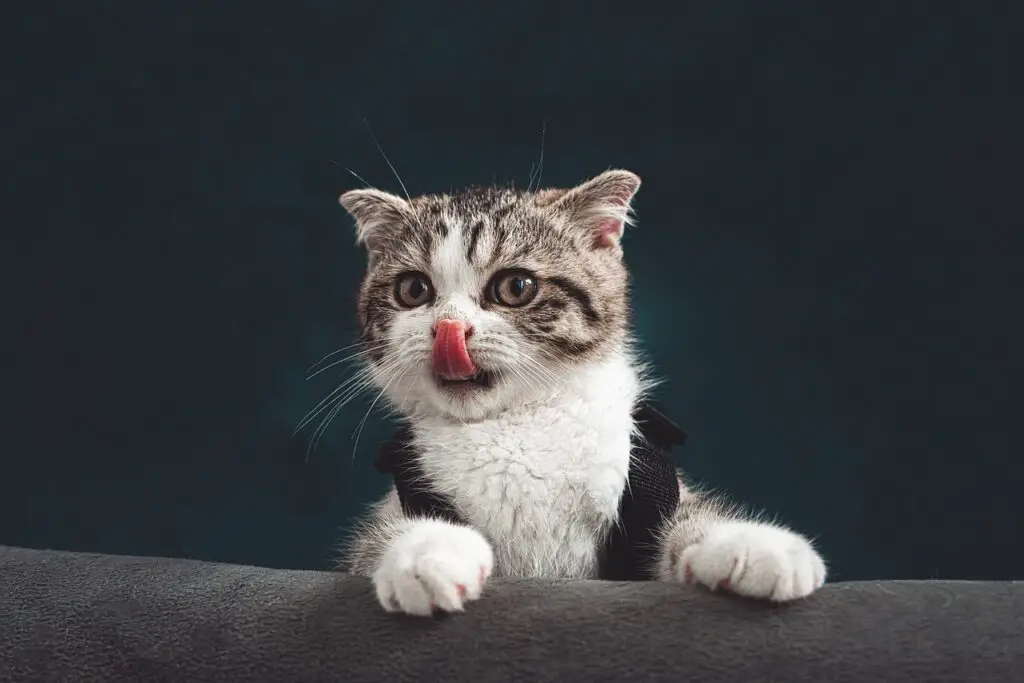Short Answer: When your cat licks you, they are expressing affection and bonding. This behavior mimics the grooming they would do with fellow cats, signifying trust and comfort. Additionally, licking can be a way for cats to mark you with their scent, reinforcing their connection. It may also indicate a desire for attention or playfulness.
Cats are fascinating creatures with unique behaviors that often leave us wondering what they are trying to communicate. When your cat licks you, it is not just a sign of affection. This behavior can reveal a multitude of emotions and intentions. Understanding these signals can deepen the bond between you and your feline friend.
Cats use licking as a form of communication. It is essential to recognize the different contexts in which licking occurs. Some may lick as a grooming gesture, while others may do it to express comfort or anxiety. This behavior stems from their natural instincts and social interactions.
| Behavior | Meaning |
|---|---|
| Affectionate Licking | Your cat shows love and trust. |
| Grooming Behavior | Your cat treats you like family, similar to how they groom other cats. |
| Stress or Anxiety | Licking may indicate your cat is feeling anxious or insecure. |
| Curiosity | Your cat is exploring and tasting you out of curiosity. |
Understanding Cat Licking Behavior
Affection and Bonding
When a cat licks you, it often signifies affection. Cats groom each other as a way to strengthen social bonds. If your cat licks you, it is likely demonstrating that it feels comfortable and safe in your presence. This behavior can also be a way for your cat to mark you with its scent, reinforcing the bond between you.
Grooming Instincts
Cats are naturally inclined to groom themselves. When they lick you, they may be treating you similarly to how they would groom another cat
Stress and Anxiety Indicators
While licking can often signify affection, it can also indicate that your cat is feeling stressed or anxious. Cats are sensitive creatures and may lick themselves or their owners in response to discomfort or nervousness. Recognizing these signs is crucial for maintaining your cat’s well-being.
- Excessive Licking: If your cat licks you frequently, it might be trying to soothe itself.
- Body Language: Pay attention to other signs, such as flattened ears or a twitching tail.
- Environmental Changes: New pets, moving to a different home, or changes in routine can trigger anxiety.
Curiosity and Exploration
Cats are naturally curious animals. When they lick you, they may be exploring their environment. Licking can be a way for them to learn about you through taste and smell. This behavior helps them gather information about their surroundings.
Understanding these motivations behind licking can enhance your relationship with your feline companion. By observing their behavior and context, you can respond appropriately to their needs.
Social Behavior and Interaction
Cats are social creatures, and licking can often serve as a form of interaction. When your cat licks you, it may be inviting you to engage in play or simply wishing to bond further. This behavior can be a part of their social hierarchy and communication methods.
- Playful Licking: If your cat licks you during a playful moment, it may be trying to initiate fun or show excitement.
- Feline Hierarchy: Licking can signify where you stand in your cat’s social structure. It may see you as a leader.
- Comforting Ritual: Some cats lick their owners as part of a comforting routine, especially during stressful situations.
The Role of Scent
Cats have a highly developed sense of smell. When they lick you, they are also interacting with your scent. This helps them recognize you and reinforces their bond. The scent is a critical part of how cats perceive their world.
By licking, they mix their scent with yours, creating a comforting environment for both. This behavior is rooted in instinct and serves to strengthen their connection with you.
Understanding Your Cat’s Needs
Recognizing why your cat licks you can help you better understand its emotional state and needs. It’s essential to observe the context of the licking behavior. Is it during a relaxed moment, or does it coincide with signs of distress? This awareness allows you to provide appropriate support and care.
Addressing Stressful Situations
If your cat exhibits licking as a response to stress, consider the following steps:
- Create a Safe Space: Ensure your cat has a quiet, comfortable area to retreat when feeling anxious.
- Routine and Stability: Maintain a consistent daily routine to minimize anxiety-inducing changes.
- Interactive Play: Engage in regular playtime to help alleviate stress and strengthen your bond.
Final Thoughts
When your cat licks you, it can communicate a range of feelings from affection and curiosity to stress and anxiety. Understanding these signals allows for a deeper connection between you and your feline companion. Pay attention to the context of the behavior, as well as any accompanying signs, to respond effectively to your cat’s needs. By fostering a supportive environment, you can enhance your relationship and ensure your cat feels safe and loved.




